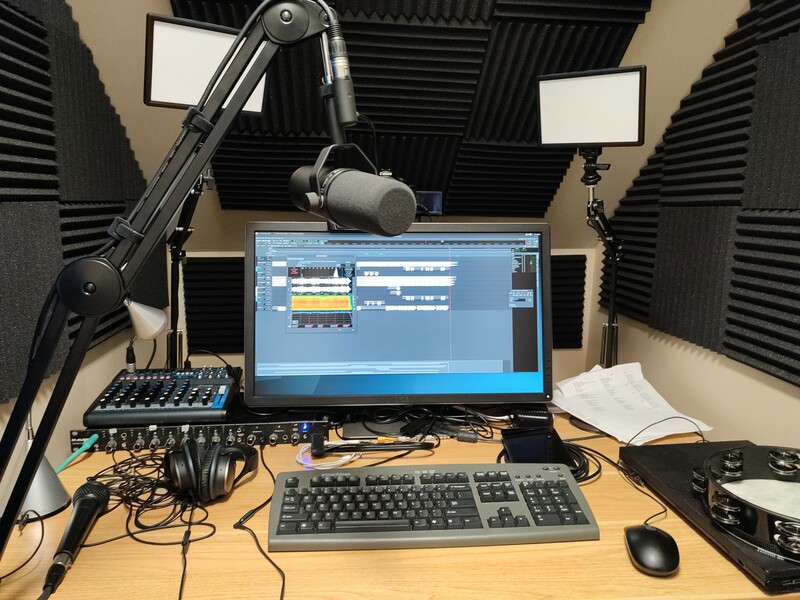 A side effect of my work on singing has been discovering what tools I need to sound decent. I started with a very good USB microphone a few years ago and then graduated to an inexpensive, 8-channel USB mixer board that I could use with some decent XLR mics I had lying around. When I got my current job, I went out and bought a top-of-the-line Shure SM7B microphone and paired it with my mixer, which got me even closer to the professional sound I wanted. Then I found a used digital sound card, an 8-channel Firewire-based M-Audio 2626 and bought it cheap.
A side effect of my work on singing has been discovering what tools I need to sound decent. I started with a very good USB microphone a few years ago and then graduated to an inexpensive, 8-channel USB mixer board that I could use with some decent XLR mics I had lying around. When I got my current job, I went out and bought a top-of-the-line Shure SM7B microphone and paired it with my mixer, which got me even closer to the professional sound I wanted. Then I found a used digital sound card, an 8-channel Firewire-based M-Audio 2626 and bought it cheap.
Now, Firewire is essentially an abandoned technology now that Apple no longer ships systems with it, but it is still alive and well in Linux. I took one of my old desktop PCs out of storage, added a hard drive, installed Ubuntu Studio on it, and now have a digital audio workstation (DAW), for dirt cheap! Ubuntu Studio comes with a huge number of audio and video production tools and plugins. It works just fine with this very old M-Audio 2626, too.
My audio tool of choice for editing was once Audacity, but Ubuntu Studio comes with the open-source, ProTools-like DAW called Ardour. I’ve learned how to do some amazing things with manipulating audio using Ardour, simply by diving in and trying different things. I’m sure there is at last 200% more I can be doing with it when I fully understand its capabilities.
Over the past few days and nights, I’ve spent my free time using Ardour to recreate one of my favorite songs, R.E.M.’s These Days. I’ve often looked for old-school karaoke tracks for R.E.M. but there are few that aren’t the hits everyone’s heard a million times already. I did some Google searches to see if anyone’s done this themselves and hit pay dirt when I found a musician named Clive Butler. Clive posted several of his R.E.M. covers to Blogger from 2011-2018 and I thought I’d start with those. Then last week, I discovered he has fresh versions on his very own YouTube channel so I downloaded his version of These Days.
Continue reading
